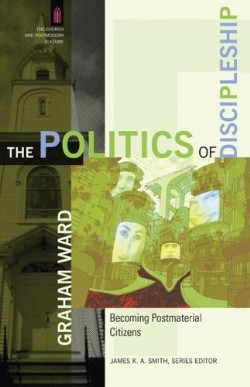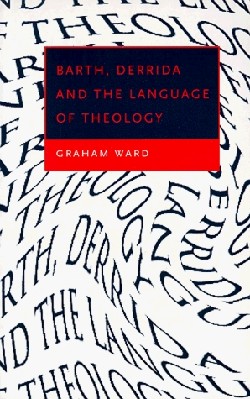Graham Ward
Showing all 2 results
-
Politics Of Discipleship
$32.00Add to cartIn this fourth volume in the Church and Postmodern Culture series, internationally acclaimed theologian Graham Ward examines the political side of postmodernism in order to discern the contemporary context of the church and describe the characteristics of a faithful, political discipleship. His study falls neatly into two sections. The first, which is the more theoretical section, considers “the signs of the times.” Ward names this section “The World,” noting that the church must always frame its vision and mission within its worldly context. In the second section, “The Church,” he turns to constructive application, providing an account of the Christian practices of hope that engage the world from within yet always act as messengers of God’s kingdom.
Ward’s study accomplishes two related goals. First, he provides an accessible guide to contemporary postmodernism and its wide-ranging implications. Second, he elaborates a discipleship that informs a faith seeking understanding, which Ward describes as “the substance of the church’s political life.”
Ward is well known for his thoughtful engagement with postmodernism and contemporary critical theology. Here he provides a broader audience with an engaging account of the inherently political nature of postmodernity and thoughts on what it means to live the Christian faith within that setting.
-
Barth Derrida And The Language Of Theology
$47.99Add to cartThis study offers a new and original analysis of the problem of religious language. Taking as its starting point Karl Barth’s doctrine of analogy, the author draws parallels between Barth’s insights into the language of theology and the work of Emmanuel Levinas and Jacques Derrida, and concludes that Barth’s doctrine of analogy is a theological reading of Derrida’s economy of differance. This important interpretation reveals Barth’s closeness to postmodern thinking and underlines his relevance to current debates on the language of theology.


